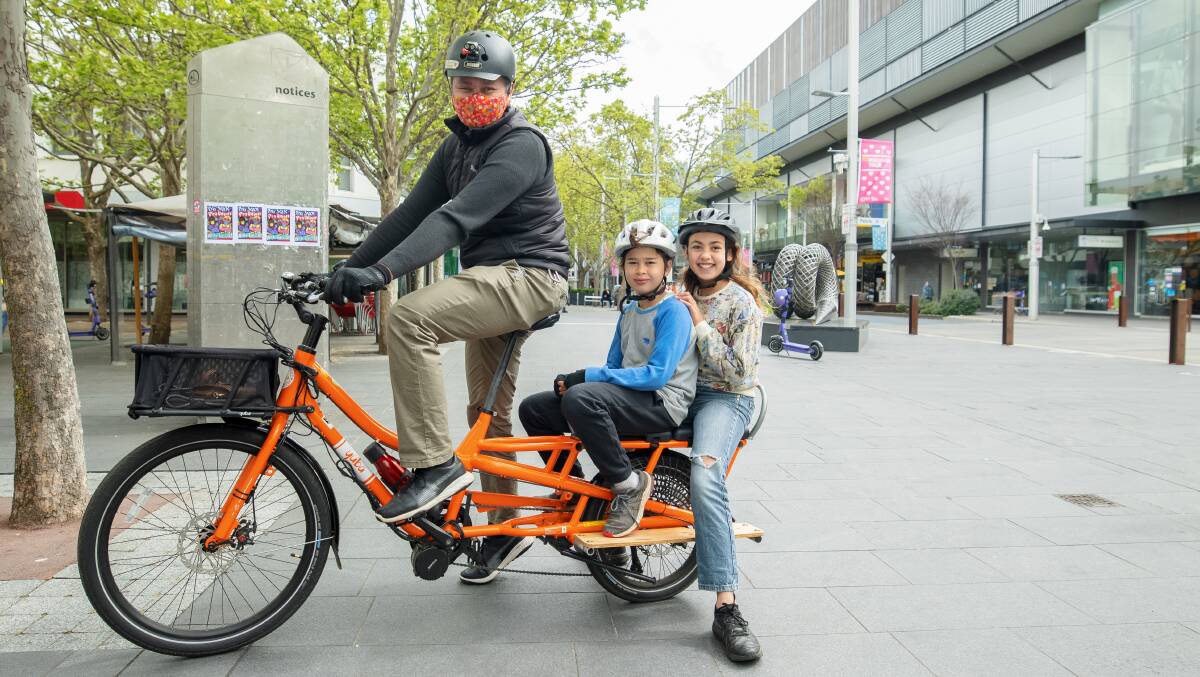Daily trips to and around Civic are almost at two-thirds of pre-lockdown levels, with Saturday visits having climbed above what they were prior to the pandemic.
More people visited Civic on Saturdays than on Tuesdays in recent weeks, offering hope to city restaurants and retailers that public sentiment and weekend use of the CBD has picked up.
Mobility data showed visits to the city were currently about four times higher than what they were at the Delta peak, with the capital's recovery happening faster than upturns in Sydney and Melbourne.
Using data from people's phones, public transport timetables and the road networks, analytics company DataSpark documented more than 72,800 trips to and within the CBD on the second Monday of 2020, compared with 42,208 trips on the same Monday this year.
Trips, defined as when a person moves from one place to another and remains there for more than 10 minutes, have been steadily increasing in the CBD as summer holidays have come to an end.
Canberrans made 46,674 Civic trips on Monday, coinciding with the City Renewal Authority's campaign encouraging people to visit the city to shop, eat and meet friends.
For some Canberra businesses the recovery has come too late, with Omicron devastating several who'd struggled through the 63-day lockdown which began when Delta was detected in the ACT on August 12.
READ ALSO:
- Canberra businesses struggling in third year of COVID pandemic amid Omicron surge
- Vaccine booster go-slow worries experts
- Omicron subvariant BA.2 'more infectious'
Data shows just over 11,000 daily trips occurred in the CBD at the height of the Delta outbreak, more movement than occurred in both Sydney and Melbourne at the time.

Prior to Omicron, trips to the capital city CBD had climbed back up to 83 per cent of pre-pandemic levels, significantly higher than what was observed in NSW and Victoria.
The Australian National University urban environment professor Xuemei Bai said increased weekend visits to Civic could be people's substitute for heading to Sydney, Melbourne or abroad.
"The second week of January is usually the time when people in Australia are heading overseas and having their vacation, but those options are largely constrained," Professor Bai said.
"So, as you can imagine the CBD has become a place where those sort of desires are redirected towards."
Professor Bai said globally trends were beginning to emerge in city centres since the pandemic, including more cyclists on the road and less use of public transport.
She said some countries were using the opportunity to implement plans for more sustainable cities, with the French making some Paris highways bike only and other European cities turning car parks into outdoor eateries.
Professor Bai said despite warnings working from home would kill the CBD, the data provided some proof of behavioural change which wasn't all bad.
"Even if a city greatly experiences setback or people trying to flee from population concentration, I think eventually people will be back," she said.
"Once that happens, I think cities will always bounce back."







